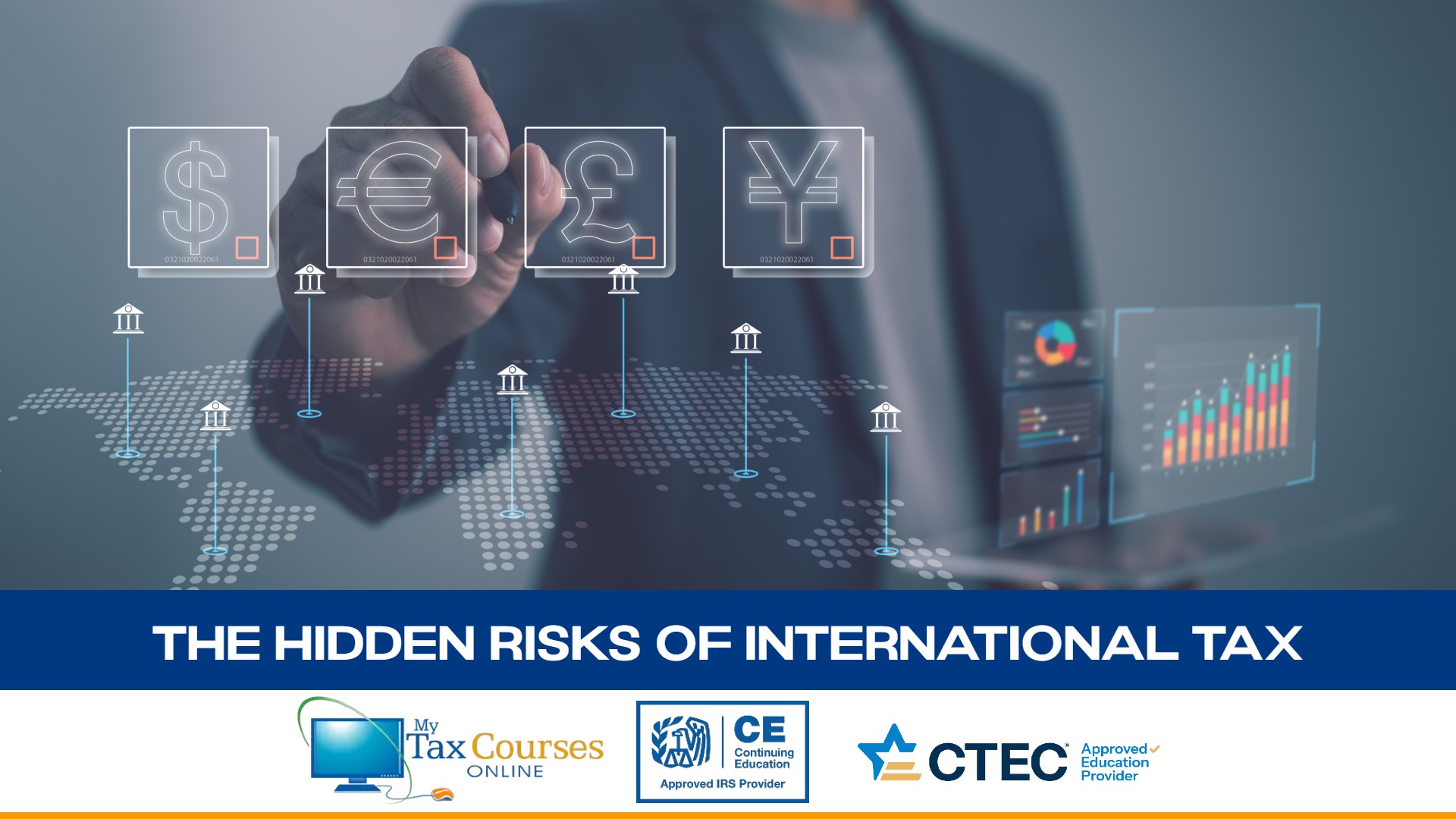In today's global economy, managing taxes across borders is no longer just a concern for multinational corporations. Everyday investors, remote workers, digital nomads, and small business owners are now facing international tax obligations they may not even be aware of.
The rules are complex. The penalties are steep. And the forms? There are many—and each comes with its own set of filing requirements and triggers.
Understanding the basics of international tax compliance is crucial whether you're navigating foreign income for yourself or on behalf of others.
What Is International Tax?
International tax refers to how income, assets, and financial activity are taxed when they cross borders. This could mean:
- Earning money while working abroad
- Investing in foreign companies or securities
- Owning real estate in another country
- Holding a bank account or business interest outside the U.S.
The U.S. tax system is especially complex because it taxes its citizens and residents on worldwide income—regardless of where they live or earn.
How Does Income Sourcing Work?
A key concept in international tax is sourcing—determining where income is considered to be earned. Why does this matter? Because how income is sourced affects which country gets to tax it, how tax credits apply, and what forms need to be filed.
For example:
- Wages are typically sourced where the work is performed.
- Interest income is sourced to the payer's residence.
- Dividends are sourced to the country where the company is incorporated.
- Rents and royalties are sourced to where the property is used.
Understanding how income is sourced helps prevent double taxation and ensures proper reporting.
The Forms You Need to Know
International tax compliance often requires filing specialized IRS forms—and missing even one can result in steep penalties.
Here are a few of the most common:
- Form 1116 – For claiming the Foreign Tax Credit
- Form 2555 – For excluding foreign earned income
- Form 5471 – For reporting ownership in foreign corporations
- Form 8938 – For disclosing foreign financial assets (in addition to FBAR)
Each form has specific thresholds and triggers, and it's easy to overlook a filing requirement if you're unfamiliar with them.
Global Trends in Tax Enforcement
Governments worldwide are stepping up their tax enforcement efforts—especially when it comes to unreported foreign income.
Key developments include:
- Automatic information exchange agreements between countries
- Increased IRS scrutiny of offshore accounts and foreign investments
- Lower thresholds for disclosure of foreign assets
- More aggressive penalties for non-filing
If you're managing any international financial activity, it's no longer enough to hope you're in compliance—you need to know you are.
How to Stay Compliant
Here are a few tips to stay on top of international tax obligations:
- Track all global income and assets—even small foreign accounts.
- Understand filing thresholds for forms like 5471 and 8938.
- Don't assume exclusions apply automatically—they often require a timely election and supporting forms.
- Review recent changes in international tax law each year.
- Seek professional guidance when dealing with cross-border issues.
Want to Learn More?
If you're looking for a deeper dive into how sourcing rules work, which forms matter, and what global trends are affecting compliance, we're offering an IRS-approved live course that covers these exact topics.
2025 International Tax Essentials: Sourcing Rules, Critical Forms & Global Trends
Presented by Crystal Stranger.
This 2-hour IRS-approved course will guide you through the core principles of the international tax system, including how income is sourced across borders, how different jurisdictions approach taxation, and which U.S. forms are essential for reporting foreign income, assets, and activities.
We’ll also explore recent and anticipated changes that are reshaping the international tax landscape- from evolving reporting thresholds to global information-sharing initiatives. Whether you're advising clients with foreign investments or managing international operations yourself, this webinar will provide the clarity and confidence you need to stay compliant and ahead of the curve. This course counts for 2 Hours of Federal Tax Law for IRS Continuing Education.






